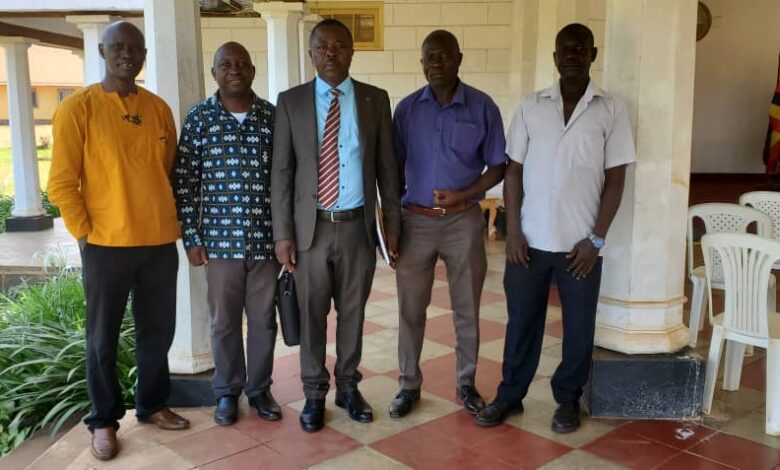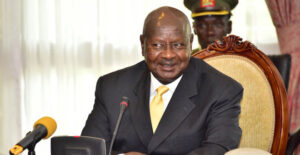How the spirit of circumcision develops among the Bamasaba circumcisers
During the procedure, traditional circumcisers use specialized stones to sharpen their knives to a precise, blade-like sharpness.

Op-Ed: As the Bamasaba people conclude the 2024 Imbalu circumcision ceremony and prepare for the next round in 2026, it’s crucial to understand the spiritual and cultural processes behind the making of a traditional circumciser, locally known as Umushebi.
For over 300 years, the Bamasaba people have practiced Imbalu, a circumcision ritual rich in history and spiritual significance.
The origin of Imbalu is mysterious and is often told through various theories. Some believe it began as a form of punishment for criminal behavior, while others link it to a cure for ailments in children. These diverse origins reflect the depth of the practice and its cultural importance.
The journey to becoming a traditional circumciser among the Bamasaba begins with a peculiar spiritual calling. The individual chosen by the spirit of circumcision (referred to as kumusambwa or bushebi) usually experiences severe weight loss or a prolonged illness that does not respond to conventional treatments.
Despite undergoing various medical examinations, doctors may fail to find any physical ailment. This condition is interpreted as the person being possessed by the spirit of an ancestor who was once a circumciser.
In such cases, the family often turns to wise men or spiritual leaders for guidance. The elders consult the oracle to determine whether the individual is destined to become a circumciser. If confirmed, a series of spiritual rituals ensue.
These include constructing two huts one for the spirit of the diviner (witch doctor) and another for the spirit of the circumciser. Sacrifices, including slaughtering cocks, are made to appease the spirits. If the spiritual guidance confirms the individual’s destiny, they begin their induction into the role of a circumciser.
It is essential for a circumciser to be guided by the spirit of their ancestors. Those without such spiritual backing should never attempt to circumcise, as the results can be disastrous, as seen in the botched circumcisions in Mayuge.
The Umushebi must be spiritually connected to the lineage of circumcisers, ensuring the ritual is performed correctly and safely. The Bamasaba cultural leaders, through the traditional circumcisers, ensure that only those properly chosen by the spirits are tasked with this responsibility.
There are several theories about the origin of Imbalu among the Bamasaba:
- Punishment Theory: The first theory posits that circumcision began as a punishment for criminal behavior. Around 300 years ago, in the Mutoto region of Masabaland, a man was notorious for sleeping with other people’s wives. As a deterrent, the community decided to circumcise him. However, after healing, the man became more attractive to women, leading to an influx of women seeking him out. This led all the men in the area to adopt circumcision, which eventually became widespread.
- Marriage Requirement: Another theory suggests that Imbalu was introduced as a condition for marriage. It is said that an alien woman (known as Umumya) from a different tribe required her future husband, who was uncircumcised, to undergo the procedure before marriage. In submission to her demands, he became circumcised, and this practice spread among the Bamasaba.
- Medical Theory: A third theory links Imbalu to a medical solution for skin diseases. According to legend, the brothers of Nabarwa, the first wife of Masaba, noticed that her children were suffering from various ailments. They suggested circumcision as a remedy, leading to the practice’s adoption by the Bamasaba.
- Cultural Borrowing: Some believe that circumcision was adopted during the Bamasaba’s migrations, possibly influenced by neighboring tribes. This theory suggests that circumcision was adopted as a cultural practice after being introduced through contact with other communities.
- Divine Command: The final theory posits that circumcision was a divine command from God. In this theory, the people were instructed by God to undergo circumcision as a sign of obedience, and those who followed this divine directive were circumcised.
The Circumcision Process
Imbalu is a sacred and meticulous ritual. During the procedure, traditional circumcisers use specialized stones to sharpen their knives to a precise, blade-like sharpness.
These sharpening stones are kept secret and are not shown to the public for cultural reasons. The circumcision ceremony itself takes place in a makeshift tent where the candidate, the surgeon (or Umushebi), and a few witnesses gather.
After the procedure, the candidate is treated with traditional herbs known as Enguwa, which accelerate healing. These herbs are sourced from special trees found deep in the forests of Masabaland, and their preservation is vital. Efforts should be made to protect these native plants for future generations.
To maintain the sanctity of the Imbalu ceremony, cultural leaders urge that the circumcision be performed in a proper and respectful manner.
This means avoiding overcrowding during the ceremony, ensuring a clean and sacred environment, and protecting the integrity of the tradition. The Umukuka III, a cultural leader among the Bamasaba, has called upon clan heads to ensure that these practices are upheld and that only those guided by the spirit of circumcision are allowed to perform the procedure.
The Bamasaba also emphasize the need to preserve their sacred stones and herbs, which are integral to the practice. UNESCO and other cultural preservation organizations should take steps to protect these elements of the culture, ensuring that future generations can continue this important ritual.
The process of becoming a Umushebi among the Bamasaba is a deeply spiritual journey, shaped by centuries of tradition and belief. The practice of Imbalu is not merely a physical act of circumcision, but a spiritual calling that binds the individual to their ancestors and community.
As the Bamasaba continue this tradition, it is crucial that they maintain the sacredness and integrity of the ritual, ensuring that future generations can experience the deep cultural and spiritual significance of Imbalu.
The author is Steven Masiga, Spokesperson for Bamasaba Cultural Institution.
Disclaimer: As UG Reports Media LTD, we welcome any opinion from anyone if it’s constructive for the development of Uganda. All the expressions and opinions in this write-up are not those of UG Reports Media Ltd. but of the author of the article.
Would you like to share your opinion with us? Please send it to this email: theugreports@gmail.com.






